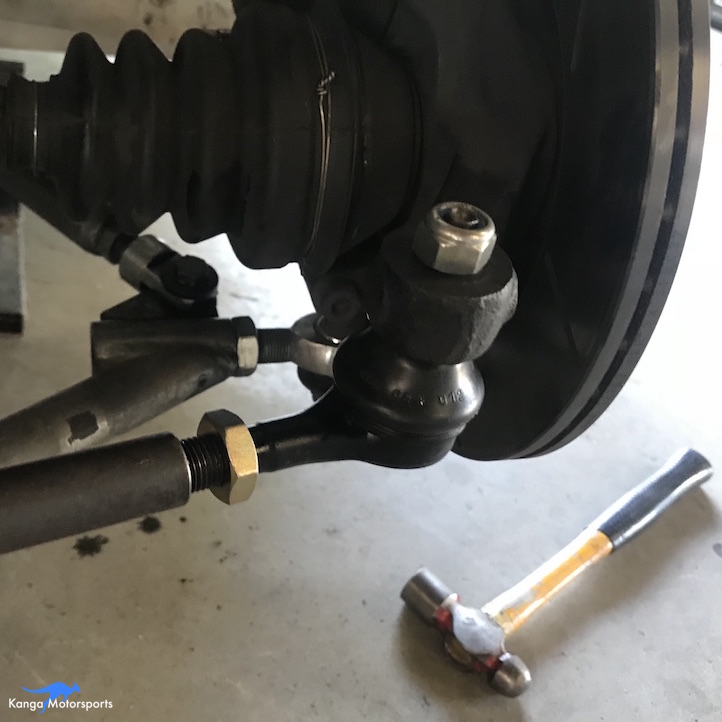Coolant Replacement or Servicing
Changing or refilling the coolant in the Spec Racer Ford Gen3 can be difficult because the radiator is in the front and you need to make sure all of the air pockets are removed from the system. Following this step by step guide should make it easier.
Tools and Equipment
Funnel
Coolant
Deionized Water
-6 AN Wrench
5/8 inch Wrench / Spanner
Long coolant hose
Gloves
Towel
Water Wetter (Optional)
Replacing of Refilling the Coolant
Most of the time the coolant needs to be replaced on a Spec Racer Ford due to a front end collision that punctures the radiator. However, it is also a good idea to replace the coolant every few years to reduce the possibility of corrosion in the coolant system.
Jack up the car to get the rear end higher than the front radiator. This also helps in getting a coolant drain pan under the motor if you are replacing the old coolant.
Drain the used/old coolant into a pan. The car should have a drain hose located near the bottom alternator side of the motor.
On our car we used a -6 AN end with a cap to close off. Place a pan under the car and undo the fitting to drain using a -6 AN and 5/8 inch wrench. Undo the radiator cap to increase the flow and remove any vacuum affect.
Connect a long hose to the drain hose with a -6 AN male fitting. Raise the other end of the hose higher than the expansion tank. You might be able to feed it up through the main roll hoop to keep it in place.
Now is a good time to add any coolant additives such as Red Line Oil Water Wetter.
Refill the coolant system from the expansion tank with your preferred coolant and deionized water. Fill the expansion tank to near the brim.
Squeeze the main coolant hoses to help burp the system and try to remove any air pockets.
Blow through the hose to remove any air pockets that might be trapped in the cylinder head or other places in the cooling system. You can hear the air bubbles as they make their way through the coolant system and you will see them exit into the expansion tank. Continue to blow through the system until all the pockets of air have been released. It might seem weird to clear air from the system by blowing air into the system but it works to push the coolant into all of the pockets in the engine block and cylinder head removing any trapped air.
Secure the radiator cap in place to pocket slow any drainage when disconnecting the lower hose. Disconnect the long hose and be ready to close the drain with the -6 AN plug. Secure the drain hose plug in place with the -6 AN and 5/8 inch wrench.
Start the car up and let it come up to temperature. Squeeze the main coolant hoses coming out of the engine to help burp the system. Wear gloves to prevent burning yourself. Also be careful of the alternator and water pump belt.
You need to wait for the thermostat to open to get the entire system to circulate around 190-200 degrees F. You can feel the radiator to determine if it is getting hot. Then you can feel the coolant tube that runs down the right side of the chassis. When the tube starts heating up you can also start squeezing the main coolant hose on that side to burp any air out.
Watch the temperature gauge and don’t let the car overheat. Also watch the gauge to see if it bounces, indicating air coming out of the system into the expansion tank.
Let the car cool down and then carefully open the radiator cap to bleed off any air pressure that might have burped out of the system. Remove the cap and refill any coolant and water needed. Note the towel below the expansion tank to help soak up any spills.
Close the radiator cap and secure it in place. You might burp the system a second time to ensure that there is no trapped air.
Then you can lower the rear end of the car to the ground.
Watch your temperature gauge closely on your next on track session to ensure there are no more pockets of air and the car does not overheat.
Want more Maintenance of Tech Tips, sign up for the Kanga Motorsports Newsletter





















When replacing or refilling the Spec Racer Ford coolant system you need to make sure the all the air is bled out of the system before heading out on track.